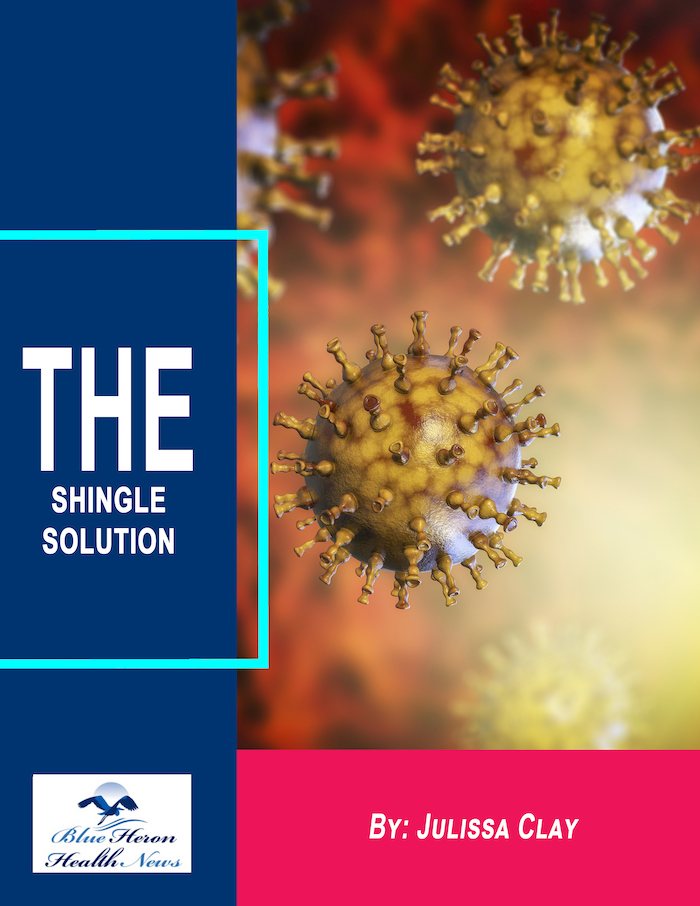
The Shingle Solution™ By Julissa Clay This eBook includes a program to treat the problem of shingle naturally. The author of this eBook, Julissa Clay, a practitioner in natural health, has killed the shingles causing virus completely to overcome the problem of PHN or Postherpetic neuralgia, one of the common complications caused by shingles. This program helps in melting PHN in a few weeks and make shingles a forgotten nightmare.
What are the common myths about shingles?
Shingles, or herpes zoster, is a condition surrounded by various misconceptions and myths. These misunderstandings can lead to confusion about the disease, its transmission, prevention, and treatment. Here are some common myths about shingles, along with clarifications:
1. Myth: Shingles is Contagious Like Chickenpox
Clarification: Shingles itself is not contagious in the way chickenpox is. A person with shingles cannot spread shingles to someone else. However, they can spread the varicella-zoster virus to someone who has never had chickenpox or been vaccinated against it, potentially causing chickenpox in that person. The virus is transmitted through direct contact with the fluid from the rash blisters, not through respiratory droplets as chickenpox can be (ScienceDaily) .
2. Myth: Only Older Adults Get Shingles
Clarification: While shingles is more common in individuals over the age of 50, anyone who has had chickenpox can develop shingles, regardless of age. The risk increases with age because the immune system tends to weaken over time. However, younger people, including children, can also develop shingles, especially if they have a weakened immune system (ScienceDaily).
3. Myth: You Can Only Get Shingles Once
Clarification: It’s possible to have shingles more than once. The varicella-zoster virus remains dormant in the nerve tissues and can reactivate at any time. While it’s more common to get shingles only once, recurrent cases can occur, especially in people with weakened immune systems (ScienceDaily).
4. Myth: Shingles is Always Accompanied by a Rash
Clarification: While a rash is a common symptom of shingles, it is possible to have shingles without a noticeable rash, a condition known as “zoster sine herpete.” In these cases, patients may experience nerve pain, itching, or burning sensations without the visible rash, which can sometimes lead to misdiagnosis (ScienceDaily).
5. Myth: The Shingles Vaccine Guarantees Immunity
Clarification: The shingles vaccine, such as Shingrix, significantly reduces the risk of developing shingles and its complications but does not provide 100% immunity. It is about 90% effective in preventing shingles and postherpetic neuralgia (PHN). Some vaccinated individuals may still develop shingles, but the symptoms are usually less severe (ScienceDaily) .
6. Myth: Shingles Only Affects the Skin
Clarification: Shingles primarily affects the skin, causing a painful rash, but it can also have systemic effects. The virus can impact the nervous system, leading to complications like postherpetic neuralgia (chronic nerve pain), vision problems (if the eyes are involved), and even hearing issues or facial paralysis if it affects the cranial nerves (ScienceDaily).
7. Myth: Shingles Is Not Serious
Clarification: Shingles can lead to serious complications, particularly in older adults or those with weakened immune systems. Complications include postherpetic neuralgia, which can cause severe, long-lasting pain, and ophthalmic shingles, which can lead to vision loss. Shingles can also cause neurological issues and skin infections if not properly managed .
8. Myth: Shingles Pain is Only Temporary
Clarification: While the acute pain from shingles may subside as the rash heals, some people develop postherpetic neuralgia (PHN), a condition where the pain persists for months or even years after the rash has disappeared. PHN can be debilitating and is one of the most common complications of shingles (ScienceDaily).
9. Myth: If You Haven’t Had Chickenpox, You Can’t Get Shingles
Clarification: It is true that shingles occurs when the varicella-zoster virus reactivates in someone who has previously had chickenpox. However, even if you do not remember having chickenpox, you could still be at risk for shingles, as the virus can lie dormant for decades. In some cases, individuals may have had a mild or subclinical infection that went unnoticed (ScienceDaily).
10. Myth: Home Remedies Can Cure Shingles
Clarification: Home remedies can provide symptomatic relief (such as soothing the skin or reducing itching), but they cannot cure shingles. Antiviral medications are the standard treatment for shingles, as they help to reduce the severity and duration of the symptoms if taken early. It’s essential to seek medical treatment for shingles, particularly to manage pain and prevent complications .
Understanding these myths and the realities of shingles can help in better managing the condition and reducing the risk of complications. Always consult with healthcare professionals for accurate information and appropriate treatment.

The Shingle Solution™ if you are suffering from shingles then The Shingle Solution can be the best program for you to relieve your pain and itching by using a natural remedy. It describes the ways to use this program so that you can feel the difference after using it as directed. This natural remedy for shingles can also help in boosting your immune system along with repairing your damaged nerves and relieve pain and itching caused by shingles.